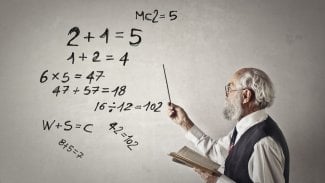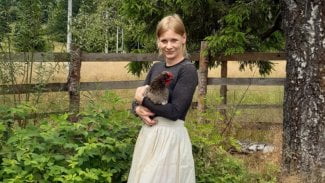trs
NAME
trs - filter replacing strings
SYNOPSIS
trs
[-[r]e]
I ' REPLACE_THIS
WITH_THAT
[AND_THIS
R WITH_THAT ]...'
trs [-[r]f] FILE
trs [-[r]f] FILE
DESCRIPTION
Copy stdin to stdout replacing every occurence of given strings with
other ones. This is similar to
tr(1),
but replaces strings, not only single chars.
Rules (separated by whitespace) can be given directly after
-e
option, or can be read from
R FILE .
Argument not preceded by
-e
or
-f
is guessed to be a script when it contains some whitespace, or a filename
otherwise.
Comments are allowed from
#
until the end of line. The character
#
in strings must be specified as
R \\\\# .
Standard C-like escapes
\\a \\b \\ \\\\n \\r \\t \\v \\\\
I \\\\ nnn
are recognized. In addition,
\\s
means a space character and
\\!
means an empty string.
Sets of acceptable characters at a given position can be specified
between
\\[
and
R \\] .
ASCII ranges in sets can be shortly written as
B FIRST - LAST.
When a set consists of only a single range,
\\[
and
\\]
can be omitted.
When a part of the string to translate is enclosed in
R \\\\{ ... \\\\} ,
only that part is replaced. Any text outside
R \\\\{ ... \\\\}
serves as an assertion: a string is translated only if it is preceded by
the given text and followed by another one.
\\{
at the beginning or
\\}
at the end of the string can be omitted. Text outside
R \\\\{ ... \\\\}
is treated as untranslated.
Before the beginning of the file and after its end there are only
R \\\\n 's.
Thus, for example,
\\n\\{.\\}\\n
matches
.
on a line by itself, including the first line, and the last one even
without the
\\n
marker.
A fragment of the form
I \\\\? x = N,
where
x
is a letter
R A - Za - z
and
N
is a digit
R 0 - 9 ,
contained in the target text sets the variable
x
to the value
N
when that rule succeeds. Similar fragment in the source text causes the
given rule to be considered only if that variable has such value.
Initially all variables have the value of
R 0 .
Several assignments or conditions can be present in one rule - they are
ANDed together.
OPTIONS
-e
Give the translation rules directly in the command line.
-f
Get them from the file specified.
-r
Reverse every rule. This affects only the next
-e
or
-f
option. Of course this doesn't have to give the reverse translation! Any
rule containing any of
\\{\\}\\[\\]\\{\\}\\-
is taken in only one direction. You may force any rule to be taken in
only one direction by enclosing the string to translate in
R \\\\{ ... \\\\} .
--help
display help and exit
--version
output version information and exit
Multiple
-e
or
-f
options are allowed. All rules are loaded together then, and earlier
ones have precedence.
EXAMPLE
$ echo Leeloo |trs -e 'el n e i i aqq o\}\n x o u' Linux
DIFFERENCES FROM sed
The main difference between
trs
and
sed 's///g;
...'
(excluding sed's regular expressions) is that sed takes every rule in
the order specified and applies it to the whole line of translated file,
whereas trs examines every position and tries all rules in this place
first. In sed every next rule is fed with the text produced by the
previous one, whereas in trs every piece of text can be translated at
most once (if more than one rule matches at a given position, the one
mentioned earlier wins). That's why sed isn't well suited for
translating between character sets. On the other hand, tr translates
only single bytes, so it can't be used for Unicode conversions, or TeX /
SGML ways for specifying extended characters.
Another example:
$ echo 642 |trs -e '4 7 72 66 64 4' 42 $ echo 642 |sed 's/4/7/g; s/72/66/g; s/64/4/g' 666
The string to replace can be empty; there must be something outside
\\{\\}
then. In this special case only one such create-from-nothing rule can
success at a given position. For example,
\\}\\x80\\-\\xFF @
precedes every character with high byte set with
R @ .
The rule of the form
some\\{ thing
doesn't work at the end of a file.
SEE ALSO
COPYRIGHT
trs is a filter replacing strings. It forms part of the konwert package.
Copyright (c) 1998 Marcin 'Qrczak' Kowalczyk
This program is free software; you can redistribute it and/or modify
it under the terms of the GNU General Public License as published by
the Free Software Foundation; either version 2 of the License, or
(at your option) any later version.
This program is distributed in the hope that it will be useful,
but WITHOUT ANY WARRANTY; without even the implied warranty of
MERCHANTABILITY or FITNESS FOR A PARTICULAR PURPOSE. See the
GNU General Public License for more details.
You should have received a copy of the GNU General Public License
along with this program; if not, write to the Free Software
Foundation, Inc., 59 Temple Place, Suite 330, Boston, MA 02111-1307 USA
AUTHOR
__("< Marcin Kowalczyk * qrczak@knm.org.pl http://qrczak.home.ml.org/
\__/ GCS/M d- s+:-- a21 C+++>+++$ UL++>++++$ P+++ L++>++++$ E->++
^^ W++ N+++ o? K? w(---) O? M- V? PS-- PE++ Y? PGP->+ t
QRCZAK 5? X- R tv-- b+>++ DI D- G+ e>++++ h! r--%>++ y-



















